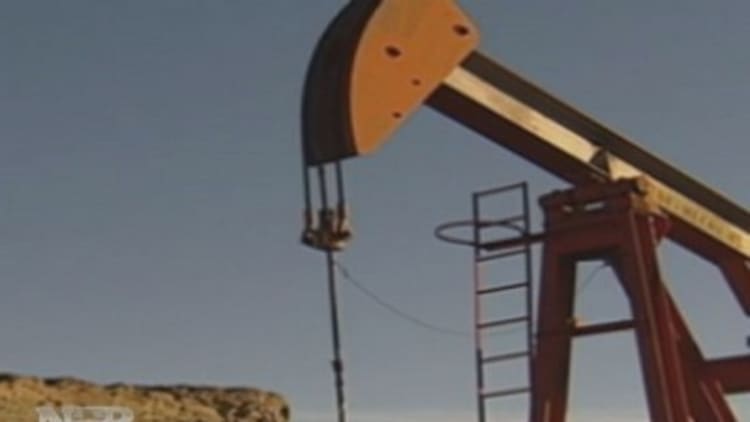
As U.S. oil production soars, momentum appears to be building toward lifting the U.S. ban on exporting crude. But a debate over the economics of the issue—namely, whether adding to global supply will result in lower oil and gas prices—remains a sticking point.
On the pro-side of the argument, oil producers and free-market champions are promoting the virtues of sharing America's shale bounty with the rest of the world. They contend that by increasing the world's supply of the light, sweet crude produced in the U.S., downward pressure will come to bear on global oil prices, resulting in lower prices at the gasoline pump.
Not so fast, say an emerging camp of opponents. Led mainly by U.S. refiners resistant to changing a status quo that's prevailed for nearly 40 years, they side with frustrated consumers who have yet to see the production boom bring about lower oil and gas prices at home.
"Wall Street economists and academics have dramatically oversimplified the issue," said Philip Verleger, an independent energy economist. He said that a dearth of pipeline infrastructure in the U.S. means that crude produced inland in places like North Dakota and Texas is "bottled up" and can't make its way to coastal ports in significant enough volume to satisfy demand.
Read MoreCalls for end to crude oil export ban are getting louder
"It's quite a complicated issue," Verleger said, adding that removing the ban would hurt the margins of refiners and won't have the halo effect of lower prices that some predict. It's not at all clear that such a move would ease consumers' energy pain, he argues.
U.S. crude exports would "move some abroad, and mean we import less," he said. "My guess on a global basis there's no impact [on prices]…and it moves money from one pocket to another."

At the center of the policy debate are U.S. refiners, which earn billions by shipping gas, diesel and other oil-based products abroad. At least for the time being, they approach the argument with a large dose of skepticism.
Bill Day, a spokesman for Valero Energy—a refiner that already exports limited amounts of crude to Canada—told CNBC that "we believe the current system…is working just fine. We don't see any need to change." (The Commerce Department has made exceptions for some exports, but they amounted to only 120,000 barrels per day in exports in 2013, according to data from the Energy Information Administration.)
Read MoreUS oil export ban could end, but does demand exist?
Additionally, opponents say that OPEC, whose member states often reduce production in response to falling crude prices, could easily offset any U.S. supply boost. In December, Saudi Arabia cut its output by nearly 5 percent to 9 million barrels a day. Although Saudi officials offered heated denials, some speculated the move was a deliberate attempt to keep propped above $100.
Crude's OPEC premium
"The fundamental flaw is that [a lifting of the export ban] assumes there is no response from Saudi Arabia and other OPEC countries," said Jeff Peck, a partner at Peck Madigan & Jones, which is spearheading an effort by refiners to push back against an end to the export ban.
"History suggests that Saudis will not sit on their hands—if there is an increase in supply, they will decrease theirs," said Peck. "That means the prices of gas will not go down as advocates suggest."
The anti-export lobbying effort, comprising an ad-hoc group of refiners that include PBF Energy, Monroe Energy and Philadelphia Energy Services, is called Consumers and Refiners United for Domestic Energy (CRUDE).
"We are on the same side of consumers, because prices will go up," Peck said. "It defies common sense that the Saudis will sit there and do nothing" if the U.S. pumps world markets with its oil.
Read MoreOil will stay above $100, say big oil investors
Still, some say lifting the export moratorium and shipping crude abroad is more of a necessity than a luxury. In an exhaustive study of the U.S. shale boom last month, RBC Capital Markets said the U.S. will be glutted with an oversupply of shale-derived oil within the next few years—and will need to send at least some of it overseas.
"The most efficient way to alleviate a glut of U.S. onshore crude is to allow crude exports," the bank wrote. "We think that either U.S. oil production growth will need to begin slowing down in late 2015, or the U.S. will need to have light oil exports to keep the refining system from being overwhelmed in 2016."
—By CNBC's Javier David.


